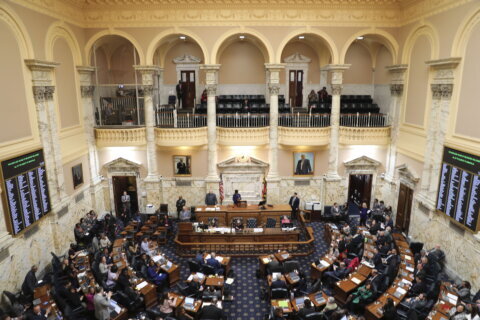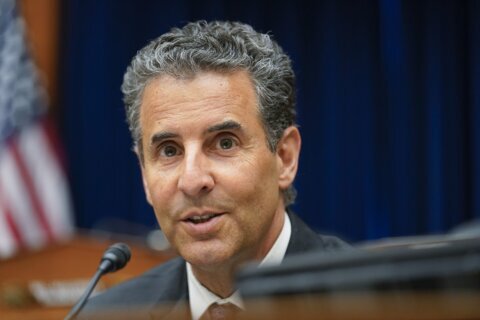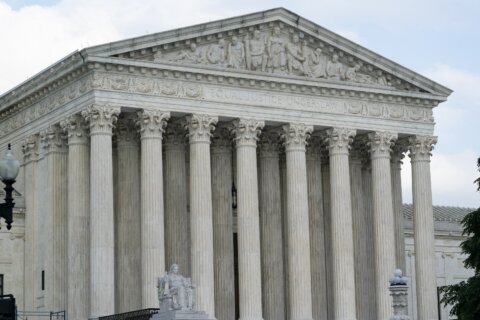Rebecca Spoor was too young to vote in the general election. The 17-year-old Georgian thought she would have to wait until the next election cycle to cast her first ballot. But now, with her state’s runoff elections on the horizon, Spoor, who turns 18 on January 3, is excited to become a first-time voter much sooner.
While Election Day has come and gone, the races for Georgia’s US Senate seats are headed to runoffs since none of the candidates received a majority of the vote in November. Voters will go to the polls once again on January 5. The fate of the Senate majority hinges on whichever party wins in the runoffs, and Democrats are hoping to flip the seats so Vice President-elect Kamala Harris will be able to break ties in the upper chamber.
With that at stake, groups that had made a concerted effort to turn out young voters for the general election are eager to rally even more in the coming months. Under Georgia law, people must be at least 17-and-a-half years old to register and 18 to vote, which means that voters who will turn 18 by January 5 can register to vote in the runoffs. The deadline to register is December 7.
“Throughout the past four years, I’ve developed more of a voice to speak up against what I think is right and to push for a fight for human rights. I’ve always known I wasn’t going to be able to vote, but it still bummed me out. I wanted to contribute to this election to fight for the LGBTQ+ community and also for BIPOC,” Spoor told CNN.
“Finding out that Georgia was going to have a runoff election excited me,” said Spoor, who registered to vote on Monday. “… My voice has more power now that I can actually vote.”
March For Our Lives Georgia is now looking to register as many soon-to-be 18-year-olds as possible and reengage other young people who voted on Election Day.
Mina Turabi, the group’s Georgia state director, said March For Our Lives Georgia will take to social media to encourage young people to register to vote. The group also will encourage all eligible voters to participate in the runoffs, emphasizing the critical role they believe young people can play in determining the outcome. The nonpartisan organization will use social media to highlight the candidates and their positions based on survey questions the organization sent the candidates in September.
According to Turabi, March For Our Lives Georgia will drop postcards with similar information on college campuses around the metro Atlanta area, including Georgia State University, University of Georgia, Emory University and Georgia Tech. Turabi said the organization plans to place the postcards in high-traffic areas for students such as Jittery Joes, the popular on-campus coffee shop at the University of Georgia.
The organization is encouraging its members to share information about the runoffs with their classes, whether it be on video calls or in person, taking two minutes at the end of class to talk about the elections or to drop a voter registration link into their class chats.
“This is a new voter pool and, frankly, these voters or soon-to-be-voters are ready for change,” Turabi said.
Early voting begins for the general election runoff for federal offices in Georgia on December 14. Citing Georgia’s history with voter suppression, the group is encouraging young people in the state to vote early.
“Momentum and progression” are at stake in the runoffs, Turabi said.
When We All Vote, the nonpartisan voter-engagement organization started by former first lady Michelle Obama, is also ramping up its efforts in the state ahead of the runoffs.
When We All Vote has “My School Votes” programs in high schools across the metro Atlanta area, including in Atlanta and DeKalb and Clayton counties. The group says it will encourage students to participate in the runoffs by voting themselves if they are of age or encouraging others to vote if they are not.
Democratic energy in Georgia is high leading into the state’s federal runoffs, following President-elect Joe Biden’s projected victory in the state. In the lead-up to the general election, groups like Fair Fight Action, the voting rights organization started by former Georgia gubernatorial candidate Stacey Abrams, made a concerted effort to expand the electorate.
Some young organizers in Georgia believe young voters of color played an important role in boosting the Democratic vote share in the state.
According to CNN’s national exit polls, young voters of color broke hard for Biden in Georgia, while their White counterparts were more loyal to Trump. While Black voters in Georgia ages 18-29 supported Biden over Trump by 76% to 23% and Latino voters in Georgia ages 18-29 supported Biden over Trump by 74% to 25%, White voters in Georgia ages 18-29 supported Trump over Biden by 60% to 38%.
“Georgia is historically a very red state. We’re not our parents, we’re not our grandparents and we’re thinking a different way. We realize the power our votes have,” Turabi told CNN.
Ethan Asher, 18, an organizer with the Future Coalition, a national network of youth-led organizations and leaders, says he “could not be happier” about the energy from young people in Georgia.
“We’ve been able to see the changing geopolitical climate of the state over the past decade and it’s really fueling us,” he said. He said his interest in activism came in part because of the late Rep. John Lewis, the Democratic Georgia icon whose own civil rights work began when he was a teen.
“We went from learning about the ‘war of northern aggression’ to now seeing Georgia flip blue.”
Asher and Sophia Woodrow, also 18 and an organizer with the Future Coalition, are teaming up with other young organizers in the state, including March For Our Lives Georgia and the Georgia Youth Poll Worker Project, to build on the momentum from young people and channel it into the runoffs.
The Georgia Youth Poll Workers Project, an initiative started by Evan Malbrough, 22, a recent graduate of Georgia State University, convened 1,000 poll workers ages 18-25 to work the polls in the general election.
In the next three weeks, Malbrough said, his group is planning a holiday-themed voter registration event for high schoolers and working with schools across seven counties in the metro Atlanta area.
Asher said he’s excited to create “Voting Atlanta Santa” Christmas sweaters with Malbrough for the event.
The young organizers will be holding get-out-the-vote weekends between now and January 5, phone banking, text banking and encouraging young Georgians to “get their peaches to the polls,” Asher told CNN, a play on the state fruit.
Malbrough wasn’t initially expecting to expand his poll worker initiative, but now, he said, he wants to build on his prior success.
“We aren’t planning to stop after the runoff,” Malbrough said. “We want to be a full-fledged poll worker recruiter station for young people in Georgia.”
And for its part, Sunrise Movement, the progressive youth-led climate organization that gained prominence while advocating for the Green New Deal, will once again mobilize its Georgia hubs, Shanté Wolfe, Sunrise’s coordinate campaigns director, told CNN.
Sunrise will canvass for Democratic Senate candidates Jon Ossoff and the Rev. Raphael Warnock, who are challenging the GOP incumbents in the runoffs.
“Our Atlanta area hubs will be doing Covid-friendly neighborhood canvassing in addition to political education and training to address the uptick in White youth voters casting ballots for Trump in Georgia,” Wolfe told CNN.
“Georgia is key to taking back our Senate, and we look forward to standing alongside leaders that have been laying the framework for the moment we are now in.”







